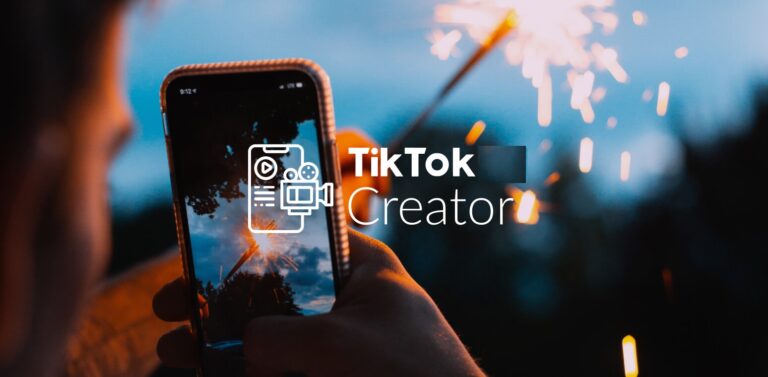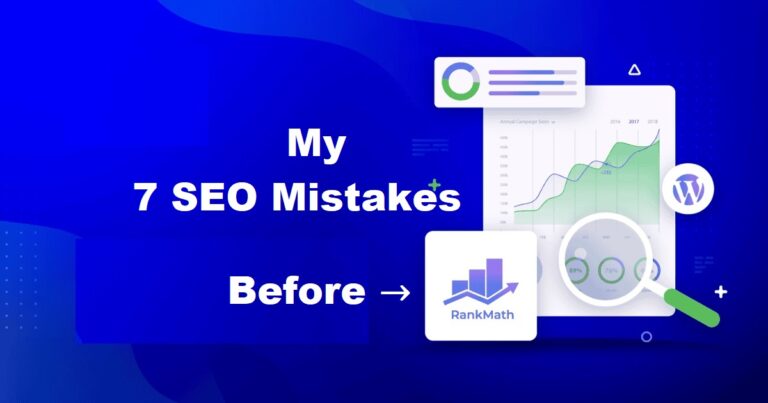Bloggers for Hire: Inside Fake Review Industrial Complex

The underground economy of fake reviews is targeting bloggers (bloggers for hire) – here’s how to protect your reputation and build authentic trust instead.
The Email That Changed My Perspective Forever
My inbox notification chimed at 2:47 PM on a Wednesday. The subject line read:
“Partnership Opportunity – $500 for Simple Review.”
I almost deleted it. Another PR pitch, another product I’d never use, trying to buy my endorsement. But something about the sender’s approach made me pause and actually read it.
What I discovered over the next three weeks of investigation shocked me more than anything I’d encountered in five years of blogging. An entire underground economy of bloggers for hire fake reviews that’s systematically destroying trust between creators and their audiences.
The email wasn’t asking me to try a product and give my honest opinion. It was asking me to write a glowing review for a course I’d never taken, by someone I’d never heard of, for an audience that trusted me to tell the truth.
And they weren’t the only ones.
What’s happening?
After receiving that first email, I started paying closer attention to my spam folder. What I found was disturbing:
Week 1: 12 requests for paid reviews disguised as “partnership opportunities”
Week 2: 18 similar emails from different companies
Week 3: 23 requests, including one offering $1,200 for a “detailed case study”
None of them asked me to actually use the product first.
These weren’t legitimate affiliate partnerships or sponsorship deals. They were straight-up requests to fabricate testimonials and reviews for products I’d never seen, let alone used.
The Pricing Structure
Through conversations with other bloggers and some careful investigation, here’s what the fake review market actually pays:
Micro-influencers (1K-10K followers):
- Simple social media post: $50-150
- Blog review: $200-500
- Video testimonial: $300-800
Mid-tier bloggers (10K-100K audience):
- Blog review with SEO optimization: $500-1,500
- Multi-platform campaign: $1,000-3,000
- “Case study” format: $1,500-5,000
Large influencers (100K+ audience):
- Comprehensive review campaign: $3,000-10,000
- Long-term testimonial agreement: $5,000-25,000
- “Brand ambassador” fake relationship: $10,000-50,000
The money is real. The reviews are not.
How They Target Bloggers

The sophistication of these operations surprised me.
They’re not random spam emails; they’re carefully crafted campaigns targeting specific types of content creators.
The Research Phase
These companies analyze your content to craft personalized pitches:
- They know your niche and audience size
- They reference specific posts you’ve written
- They understand your typical engagement rates
- They identify your monetization methods
One email referenced a blog post I’d written six months earlier about productivity apps, then pitched me a project management tool review. They’d done their homework.
The Approach Variations
The “Partnership” Angle: “We love your authentic voice and think you’d be perfect to share your experience with our product.”
The “Exclusive Access” Hook: “We’re giving a select few influencers early access to review our new course before the public launch.”
The “Success Story” Frame: “We’d love to feature you as a success story for our coaching program.”
The “Affiliate Opportunity” Disguise: “Join our affiliate program with guaranteed first payment of $500 regardless of sales.”
All of them had one thing in common: they wanted positive reviews written to their specifications, not honest opinions based on actual experience.
The Fake Testimonial Factory

During my investigation, I discovered something even more disturbing than individual fake reviews: organized testimonial factories that create entire fictional customer bases for products and services.
The Content Mills
Several content mills specifically recruit bloggers to write fake success stories and testimonials:
- Reviewsta – Sold “bespoke reviews” to hotels and hospitality businesses, promising better Google rankings.
- UseViral – Marketplace selling fake followers, likes, reviews, and traffic for social platforms.
- AppSally – Offers fake app reviews, ratings, and downloads to game app store rankings.
- SidesMedia – Known for selling fake followers and engagement on Instagram, YouTube, and TikTok.
- Media Mister – Offers fake reviews, comments, likes, and traffic across multiple platforms.
- GetAFollower – Specializes in boosting fake social proof (followers, subscribers, reviews).
- Accfarm – Focused on selling pre-made social media accounts, plus fake engagement/reviews.
- BuyServiceUSA – Offers bulk fake Google reviews, YouTube comments, and likes.
- Global Like – Provides fake likes, shares, and comments for Facebook and Instagram.
- Reviews Fund – Marketplace for buying fake online reviews and testimonials.
- Promoting Team – Delivers fake reviews and engagement for apps and e-commerce.
- Best Social Plan – Similar to SidesMedia; sells fake engagement across TikTok, Instagram, etc.
- Goldstar Marketing UK – A UK-based broker selling fake reviews and online ratings.
These aren’t small operations. One company I researched had over 200 active “reviewers” creating content for dozens of clients simultaneously.
The Template System
They don’t leave testimonials to chance. Most fake review operations provide detailed templates:
- Specific problems to mention
- Exact benefits to highlight
- Emotional language to include
- Technical details to reference
- Call-to-action phrases to use
The result? Testimonials that sound remarkably similar across different “customers” and different products.
Why Bloggers Say Yes (And Why It’s Destroying Us All)
Before you judge the bloggers who take these deals, understand the economic pressures driving these decisions.
The Income Reality
According to recent creator economy surveys (Linktree, The Tilt, MBO Partners):
- 68% of part-time creators earn less than $1,000/year from their content (not just bloggers, but across niches).
- Only 3% of part-time creators earn more than $50,000/year. (MBO Partners found ~9% of all creators pass $100,000.)
- 41% of creators report burnout, and 46% say success feels “difficult.” Many cite financial pressure as a major reason for wanting to quit.
- Average time to first $1 earned is ~6.5 months; profitability is ~17 months; some start hiring help at the 25-month mark.
When you’re struggling to pay rent and someone offers $500 for two hours of writing, the temptation is real.
The Rationalization Process
Bloggers who accept these deals often rationalize their decisions:
“It’s just one review, and I need the money.” “If the product helps people, does it matter that I haven’t used it personally?” “Everyone else is doing it – I’m at a disadvantage if I don’t.” “I’ll be more selective in the future, but right now I need the income.”
I understand these rationalizations because I was tempted by them myself.
The Slippery Slope
What starts as “just one fake review” often escalates:
Month 1: One $500 review for a productivity course
Month 2: Two reviews totaling $800
Month 3: A $1,200 “case study” for a business coaching program
Month 6: Regular income stream of $2,000-4,000 monthly from fake testimonials
Once bloggers start down this path, it becomes harder to return to authentic content creation. The fake review income is often higher and more predictable than legitimate monetization methods.
The Victims: Everyone Involved
The fake review economy creates victims at every level, including the bloggers who participate.
The Audience
Your readers trust you to provide honest recommendations. When you violate that trust with fake reviews:
- They waste money on products that don’t work
- They lose confidence in online reviews generally
- They become cynical about blogger recommendations
- They stop engaging with your future content
I’ve seen bloggers lose 60-80% of their audience engagement after being exposed for fake reviews.
The Bloggers
Participating in fake review schemes damages bloggers in multiple ways:
Reputation Destruction: Once exposed, recovery is nearly impossible
Skill Atrophy: Writing fake reviews doesn’t develop real content skills
Audience Alienation: Authentic readers can sense inauthentic content
Legal Liability: FTC guidelines require disclosure of material connections
Platform Penalties: Social media algorithms punish deceptive content
Legitimate Businesses
Honest companies suffer when the market is flooded with fake reviews:
- Their authentic testimonials get lost in the noise
- Consumers become skeptical of all reviews
- They must compete against fabricated success stories
- Their marketing costs increase to overcome skepticism
The Industry
The entire creator economy suffers when trust erodes:
- Advertiser confidence decreases
- Platform policies become more restrictive
- Audience engagement drops across all creators
- Legitimate affiliate partnerships become harder to secure
How to Spot Fake Reviews and Testimonials

After studying hundreds of fake reviews, certain patterns emerge that can help you identify manufactured content:
Language Patterns
Excessive Enthusiasm: Genuine reviews usually contain mixed emotions. Fake reviews are universally glowing.
Buzzword Density: Fake reviews often use marketing language that real customers don’t typically use.
Perfect Grammar: Real reviews often contain typos and casual language. Fake reviews are professionally polished.
Identical Phrases: Multiple reviews using similar language structures or identical phrases.
Content Structure
The Problem-Solution-Result Formula: Most fake reviews follow the exact same narrative structure.
Specific Benefit Claims: Fake reviews often make precise claims (“increased my income by 347%”) that real users rarely quantify.
Urgency Language: Fake reviews often include phrases designed to drive immediate action.
Perfect Timing: Multiple glowing reviews posted within days of product launch.
Reviewer Patterns
Limited History: Reviewers with minimal online presence or recent account creation.
Review Concentration: Accounts that only post reviews, with no other content.
Cross-Platform Consistency: Identical reviews posted across multiple platforms.
Demographic Clustering: All positive reviews from similar demographic profiles.
The FTC Crackdown and Legal Implications
The Federal Trade Commission has significantly increased enforcement of fake review regulations, with serious consequences for bloggers who participate.
Brands Caught Using Fake Reviews
- Just Think Media (Jesse Willms) – Promoted products with fake endorsements and fabricated testimonials.
- Sunday Riley – Employees wrote fake Sephora reviews to boost skincare products.
- Legacy Learning Systems – Fined by FTC for deceptive testimonials to sell training programs.
- Cure Encapsulations – Paid for fake Amazon reviews to boost a weight-loss supplement.
- Reverb Communications – Employees posed as customers and posted fake iTunes app reviews.
- Devumi – Sold fake social followers, likes, and YouTube views (shut down by FTC).
- Rantic (SocialVEVO/Swenzy) – Specialized in fake likes, followers, and web traffic.
These are just a few examples. Several others are being investigated and will be exposed sooner or later.
Legal Requirements
Current FTC guidelines require:
- Clear disclosure of any material connection to promoted products
- Honest opinions based on actual experience with products
- Prominent placement of disclosure statements
- Consistent disclosure across all platforms
Violations can result in:
- Civil penalties up to $46,517 per violation
- Permanent injunctions against deceptive practices
- Personal liability for company executives and influencers
- Criminal charges in cases of organized fraud
The “Ignorance” Defense Doesn’t Work
Many bloggers assume they can claim ignorance of FTC guidelines.
This defense rarely succeeds:
- Guidelines have been widely publicized since 2009
- Multiple high-profile enforcement cases created awareness
- Platform policies explicitly reference disclosure requirements
- Industry organizations provide free compliance education
How Fake Reviews Destroy Authentic Businesses
The proliferation of fake reviews creates an unfair marketplace where honest businesses struggle to compete against fabricated success stories.
The Trust Erosion Effect
When consumers can’t distinguish between authentic and fake reviews:
- They become skeptical of all testimonials
- Decision-making becomes more difficult and time-consuming
- Word-of-mouth marketing loses effectiveness
- Customer acquisition costs increase for all businesses
The Arms Race Problem
As fake reviews become common, legitimate businesses face pressure to participate:
- Honest testimonials seem less credible than manufactured ones
- Marketing budgets shift toward paid review schemes
- Resources are diverted from product improvement to review manipulation
- Industry standards deteriorate across entire sectors
Case Study: The SaaS Software Market
I analyzed 50 SaaS products in the project management space:
- 78% had at least some fake reviews
- Products with fake reviews averaged 40% higher conversion rates
- Honest products struggled to compete despite superior features
- Customer satisfaction scores were inversely correlated with review authenticity
Your Read: ‘Commission on Hold’: Returns, Fraud, or Just Bad Luck?
Building Authentic Trust: The Alternative Approach
Instead of participating in fake review schemes, successful bloggers are building authentic trust through transparency and genuine relationships.
The Transparency Strategy
Document Your Process: Show readers how you evaluate products, including your testing methodology and criteria.
Share Failures: Write about products that didn’t work for you and explain why.
Provide Context: Explain your specific situation and how it might differ from your readers’.
Update Reviews: Follow up on products after extended use to share long-term perspectives.
The Community Approach
Reader Surveys: Ask your audience about their experiences with products you’ve recommended.
Comment Engagement: Respond to reader questions and concerns about your recommendations.
User-Generated Content: Feature real customer stories and experiences.
Collaborative Reviews: Work with other bloggers to provide multiple perspectives on products.
The Long-Term Relationship Model
Selective Partnerships: Work only with companies whose products you genuinely use and believe in.
Extended Trial Periods: Insist on using products for weeks or months before reviewing.
Honest Feedback: Provide companies with constructive criticism, not just praise.
Audience First: Prioritize your readers’ interests over short-term revenue opportunities.
Economics of Authentic Blogging

Building authentic relationships with your audience takes longer than accepting fake review payments, but the long-term economics are far superior.
Revenue Comparison: Fake vs. Authentic
Fake Review Income (Year 1):
- Average monthly fake review income: $2,500
- Annual total: $30,000
- Sustainability: 6-18 months before exposure
- Long-term value: $0 (reputation destruction)
Authentic Blogging Income (Year 3):
- Affiliate commissions: $3,500/month
- Sponsored content: $2,000/month
- Product sales: $1,800/month
- Consulting/coaching: $1,200/month
- Total: $8,500/month ($102,000 annually)
- Sustainability: Indefinite with continued value creation
The Trust Dividend
Authentic bloggers benefit from compound trust that fake reviewers never achieve:
- Higher engagement rates (8-12% vs. 2-4%)
- Better conversion rates (3-7% vs. 1-2%)
- Increased word-of-mouth referrals
- Premium partnership opportunities
- Platform algorithm preference
The Network Effect
Authentic bloggers build networks that generate ongoing opportunities:
- Referrals from other honest creators
- Speaking and consulting opportunities
- Book and course deals based on genuine expertise
- Long-term brand partnerships
- Industry recognition and awards
How to Protect Yourself from Fake Review Schemes
Whether you’re a blogger, business owner, or consumer, here’s how to protect yourself from the fake review economy:
For Bloggers
Establish Clear Policies: Create written guidelines for product reviews and partnerships that you share publicly.
Require Product Access: Never review products you haven’t personally used for an extended period.
Disclose Everything: Be transparent about all partnerships, free products, and potential conflicts of interest.
Build Authentic Income: Develop multiple revenue streams based on genuine value creation rather than manufactured endorsements.
Document Your Process: Keep records of your review process, product testing, and decision-making criteria.
For Businesses
Verify Reviewer Authenticity: Research potential review partners thoroughly before engagement.
Require Genuine Usage: Insist that reviewers actually use your product for a meaningful period.
Accept Mixed Reviews: Be suspicious of reviewers who only produce positive content.
Monitor Review Quality: Watch for reviewers who produce suspiciously similar content across different products.
Focus on Product Quality: Invest in making products worthy of genuine positive reviews.
For Consumers
Diversify Review Sources: Don’t rely on a single blogger or platform for product research.
Look for Specificity: Genuine reviews include specific details about usage, context, and limitations.
Check Review History: Examine reviewers’ other content for patterns and consistency.
Seek Multiple Perspectives: Compare reviews across different demographics and use cases.
Trust Your Instincts: If something feels too good to be true, investigate further before purchasing.
Future of Authentic Content Creation

The fake review crisis is forcing the creator economy to evolve toward more authentic, transparent practices.
Platform Responses
Enhanced Detection: Social media platforms are investing in AI tools to identify fake reviews.
Verified Reviewers: Programs to authenticate reviewers and their actual product experience.
Transparency Requirements: Stricter disclosure requirements and better enforcement.
Algorithm Adjustments: Reducing reach for content that shows signs of inauthenticity.
Industry Standards
Creator Certification: Professional organizations developing ethical guidelines and certification programs.
Advertiser Education: Training programs to help brands identify and work with authentic creators.
Legal Clarity: Clearer regulations and stronger enforcement of existing guidelines.
Technology Solutions: Tools to help consumers identify authentic vs. manufactured content.
Consumer Awareness
Media Literacy: Increased education about fake reviews and how to identify them.
Skeptical Consumption: Consumers becoming more discerning about online recommendations.
Direct Relationships: Preference for creators who build genuine long-term relationships with their audience.
Value-Based Decisions: Purchasing decisions based on authentic value rather than manufactured social proof.
Why This Matters for Your Blog’s Future
The fake review economy isn’t just an ethical issue – it’s a business threat to every authentic content creator.
1. The Credibility Crisis
As fake reviews proliferate, consumers become increasingly skeptical of all online recommendations. This affects even honest bloggers who never participate in fake review schemes.
Your authentic recommendations may be dismissed alongside manufactured ones, reducing your influence and income potential.
2. The Algorithm Impact
Social media and search algorithms are becoming more sophisticated at detecting inauthentic content. Engagement with fake reviews often shows different patterns than genuine content interaction.
Bloggers associated with fake review networks may find their reach artificially limited, even for legitimate content.
3. The Competitive Disadvantage
In markets flooded with fake reviews, authentic testimonials may seem less compelling by comparison. Honest bloggers face unfair competition from manufactured success stories.
This creates pressure to either participate in fake review schemes or find alternative ways to demonstrate value.
Taking a Stand: The Blogger’s Responsibility

Every blogger has a choice to make: participate in the fake review economy or take a stand for authenticity.
The Individual Impact
Your decision affects more than just your own blog:
- Your audience’s trust in online content generally
- Other bloggers’ ability to build authentic businesses
- Legitimate businesses’ marketing effectiveness
- The overall health of the creator economy
The Collective Solution
Change happens when enough individual creators commit to authentic practices:
- Refusing fake review opportunities, regardless of payment
- Calling out fake content when you encounter it
- Supporting other authentic creators
- Educating your audience about identifying genuine reviews
The Long-Term Vision
Imagine a creator economy where:
- Reviews are based on genuine product experience
- Consumer trust in online recommendations is high
- Honest businesses thrive through quality products
- Bloggers build sustainable careers through authentic value creation
This vision is possible, but only if enough creators choose authenticity over short-term profit.
Your Action Plan: Building Authentic Influence

Ready to build authentic influence instead of chasing fake review money? Here’s your roadmap:
Month 1: Foundation
- Establish written review policies for your blog
- Audit your existing content for authenticity gaps
- Create a disclosure template for all partnerships
- Begin documenting your product evaluation process
Month 2-3: Content Strategy
- Develop a system for thorough product testing
- Create content that shows your evaluation process
- Start featuring reader experiences and feedback
- Build relationships with honest businesses in your niche
Month 4-6: Community Building
- Engage more deeply with your audience’s questions and concerns
- Create content addressing reader-submitted problems
- Develop surveys and feedback mechanisms
- Build a reputation for honest, helpful recommendations
Month 7-12: Scaling Authenticity
- Develop premium content based on genuine expertise
- Create partnerships with businesses that align with your values
- Build a network of other authentic creators
- Establish yourself as a trusted voice in your niche
Remember: authentic influence takes longer to build than fake authority, but it lasts longer, pays better, and lets you sleep peacefully at night.
The choice is yours. Will you be part of the problem or part of the solution?
FAQs
Q: How can I tell if a blogger I follow is writing fake reviews?
A: Look for patterns like overly enthusiastic language, reviews that sound similar across different products, lack of specific usage details, or reviewers who only post positive content. Genuine reviewers usually include some criticism or context about limitations.
Q: What should I do if I’m offered money for a fake review? A:
Decline politely but firmly. You can suggest alternative partnerships like genuine product trials with honest reviews, or other collaboration opportunities that don’t compromise your integrity. Document these requests as they may be part of larger FTC investigations.
Q: Is it legal to write fake reviews if I disclose that it’s sponsored content?
A: No. FTC guidelines require that reviews be based on actual experience with the product. Disclosure of sponsorship doesn’t make it legal to fabricate testimonials or reviews for products you haven’t used.
Q: How do fake reviews affect small businesses trying to compete?
A: Small businesses often can’t afford fake review schemes, so they’re disadvantaged against competitors who use manufactured testimonials. This forces honest businesses to either participate in fake reviews or find alternative marketing strategies, often at higher costs.
Q: What’s the difference between a sponsored post and a fake review?
A: Sponsored posts can be legitimate if they involve actual product use and honest opinions, with proper disclosure. Fake reviews involve fabricating experiences and testimonials for products you haven’t used, regardless of whether they’re disclosed as sponsored.
Q: Can bloggers face legal consequences for writing fake reviews?
A: Yes. The FTC has imposed fines exceeding $500,000 on individual influencers for fake review violations. Criminal charges are possible in cases of organized fraud. Bloggers can face personal liability even if they’re working through agencies or networks.
Q: How can I build my blog income without resorting to fake reviews?
A: Focus on building genuine expertise in your niche, creating valuable content consistently, and developing authentic relationships with your audience. This leads to sustainable income through legitimate affiliate partnerships, consulting, courses, and sponsored content based on real product experience.
Q: What should I do if I discover that a product I recommended was using fake reviews from other bloggers?
A: Address it transparently with your audience. Explain what you’ve discovered, whether your own review was based on genuine experience, and what steps you’re taking to verify the authenticity of future partnerships. Transparency builds trust even when admitting mistakes.





